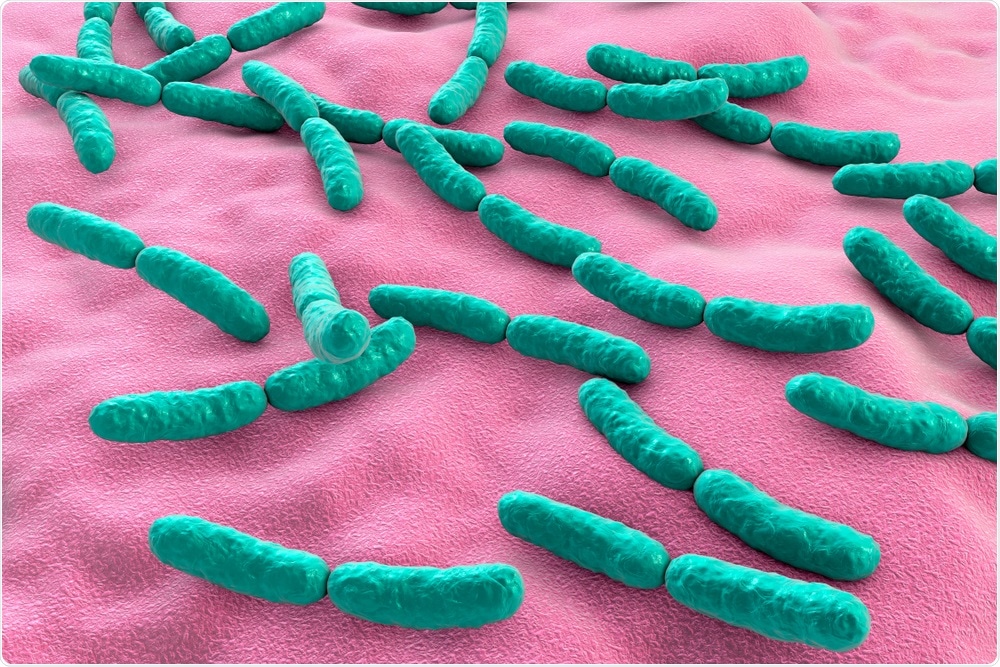Researchers at the California Institute of Technology have made an important discovery that may explain how gut bacteria could contribute to autism-like behaviors.
The team found that when mice were colonized with gut microbes from people with ASD, not only did they develop autism-like behaviors; they also had altered gene expression patterns and metabolites in their brains, compared with mice that had not been colonized with the bacteria.
 Kateryna Kon | Shutterstock
Kateryna Kon | Shutterstock
Gut microbiota is the term used to describe the communities of microorganisms that reside in the human intestine and, together, their genomes are referred to as the microbiome. These microbes have a symbiotic relationship with humans, exchanging favourable living conditions such as warmth and nutrient availability for “help” with digestion, metabolism and immune system responses.
In the United States, an estimated 1 in 59 individuals are affected by autism, which causes a range of difficulties with social communication and repetitive behaviors. Many studies have previously found differences in the gut microbiome between people with and without autism.
"However, while this previous research identifies potentially important associations, it is unable to resolve whether observed microbiome changes are a consequence of having ASD or if they contribute to symptoms," says the author of the current study, Sarkis Mazmanian, a microbiologist at the California Institute of Technology.
The study by Mazmanian and colleagues lends support to the growing body of evidence for a gut-brain link in autism. While the results do not prove a causal relationship between gut bacteria and autism, they do show that gut microbiota can contribute to some features of the disorder in mice. They also shed light on a potential mechanism for the effects observed in the animals.
"Our study shows that the gut microbiota is sufficient to promote autism-like behaviors in mice. Additional studies are needed to address the impact of gut bacteria in humans,” says first author Gil Sharon.
The research
To examine the effect the gut microbiome may have on autism-like behaviors, the team used mice that were “germ-free,” meaning they had been grown in the absence of any microbes and did not have microbiomes of their own.
Gut samples containing microorganisms from children with and without autism were transferred to the mice by fecal transplant and pairs of mice colonized with the same microbiomes were mated to produce offspring that had been exposed to the human microbes during the early stages of development.
The offspring then underwent tests that are used to determine autism-like behaviors in mice and recorded how often they vocalized and interacted with other mice. The researchers also tried to stimulate the repetitive behaviors sometimes seen in humans with autism by introducing marbles into the animals’ cages and seeing how many the mice buried.
As reported in the journal Cell, the mice colonized with bacteria from children with ASD (ASD microbiota) demonstrated autism-like behaviors, whereas the animals without ASD microbiota did not exhibit these behaviors.
Compared with mice without ASD microbiota, those with the bacteria interacted less with other mice, vocalized less and demonstrated more repetitive behavior. All of these behaviors were similar to the behavioral features seen in humans with ASD.
Next, the researchers dissected the animals’ brains and performed RNA analysis to look for differences between the two groups in how DNA is processed (spliced) before it is used to produce a protein.
The mice with ASD microbiota exhibited differences in splicing for 560 genes, 52 of which are known to be associated with autism.
The effects were ‘profound’
Sharon says this is an intriguing hint that the products of gut microbes might somehow change autism risk by influencing what forms of proteins are made in the brain.
When the team analyzed the animals’ guts, they also found between-group differences in the levels of 27 metabolites – molecules that are produced as a result of digestion and microbial metabolism.
In particular, levels of the metabolites 5-aminovaleric acid (5AV) and taurine were lower in the mice with ASD microbiota. ASD has sometimes been characterized by an imbalance between excitatory and inhibitory signals in the brain.
Since 5AV and taurine are known to affect inhibitory neural receptors called GABA receptors, the researchers were interested to find that levels of these metabolites were found to be lower in the mice with ASD microbiota.
"We were surprised to see how profound the effects were," says Sharon.
The researchers then turned to a different mouse model of autism - a strain called BTBR mice that naturally demonstrates autism-like behaviors. On treating the mice with 5AV or taurine, the team found the animals did indeed exhibit less anti-social and repetitive behaviors. Furthermore, analysis of the animals’ brains showed that 5AV, in particular, reduced neural excitability.
Mazmanian says the findings provide clues about the role the gut microbiota plays in the neural changes that are associated with ASD:
It suggests that ASD symptoms may one day be remedied with bacterial metabolites or a probiotic drug. Further, it opens the possibility that ASD, and perhaps other classical neurologic conditions, may be treated by therapies that target the gut rather than the brain, a seemingly more tractable approach."
Neuroscientist John Cryan (University College Cork, Ireland), who was not involved in the research, says the findings are “quite encouraging” and that the idea that metabolites can influence brain activity is plausible, makes sense and will help push the field forward.
Cryan emphasizes that the results are unlikely to immediately yield new microbiome-based treatments; the two metabolites highlighted here may turn out to be unrelated to autism in humans.
Still, the research justifies a hunt for other metabolites deficient in the gut or brain of people with the disorder. This will give encouragement to the field that there is something there.
Dr. John Cryan, Neuroscientist
Sources:
Sharon, G., et al. (2019). Human Gut Microbiota from Autism Spectrum Disorder Promote Behavioral Symptoms in Mice. Cell. doi.org/10.1016/j.cell.2019.05.004.
Servick, K. (2019). Gut bacteria may contribute to autism symptoms, mouse study finds. Science.